São Paulo CNN —
In a flimsy wooden structure in a small favela on the outer edges of São Paulo, a kitchen, bed, and television occupy the same room.
This is the tiny home of 46-year-old single mother Sandra Silva. It is all she can afford, and she has had little time to spruce it up because taking care of her four children and one grandchild who live with her has turned into a full-time job.
“It hasn’t been easy,” she told CNN. She has struggled to find work and is living off government benefits, rationing what the family eats so they can afford baby formula. Most of the time, she gives the children rice and beans, but worries that they need more nutritious food, she says.
Food is on the ballot for millions of poor Brazilians as they head to the polls to choose their next leader in a runoff vote on Sunday. Silva’s food insecurity is partly why she is going to vote for former leftist President Luiz Inacio Lula da Silva, she says.
“During the pandemic there were so many deaths and then nothing improved, things are only getting more and more expensive,” she says. “I intend to vote for Lula because (incumbent Brazilian President) Bolsonaro has been there for four years. And in four years he hasn’t been able to do much.”
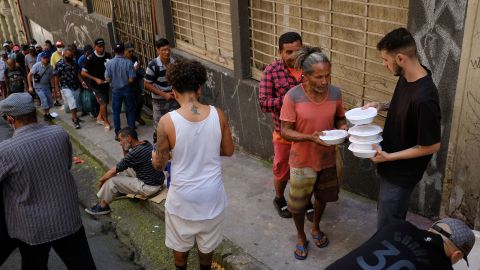
Though unemployment has been on the decline in the Latin American nation, its economy has struggled to pick up pace since the worst days of the pandemic. Now the war in Ukraine is driving the cost of living up, leaving many in precarious conditions. A recent study by a network of NGOs, including Oxfam, found more than 33 million Brazilians are experiencing hunger.
Silva was one of the first to settle in the favela known as the Nova Vitoria Esperança community six years ago. Back then there were only a handful of houses in a largely forested area, but the pandemic has seen its numbers grow. More than 100 families, many driven away from other parts of the city due to rising costs have settled here in the past two years. Social workers tell CNN that most of them need support.
Around the neighborhood, posters cover the walls in support of the leftist presidential hopeful Lula da Silva and his Workers Party. There is little love on display for his rival, the right-wing Bolsonaro, who has struggled to reach this area and its electorate.
Although nationwide polls suggest only a five-point difference between the two candidates — 49% for Lula, 45% for Bolsonaro according to an Oct. 20 poll by Brazilian institute Datafolha – that gap widens to 57% for Lula and 37% for Bolsonaro when only the poorest are taken into account, according to the institute.
Lula, who previously served as president from 2003 to 2011, is widely remembered as having lifted millions of Brazilians from extreme poverty through “Bolsa Familia” welfare program.
But Bolsonaro has tried to turn the tide, spending billions on subsidies ahead of the election in a bid to woo poorer voters. His government’s welfare program, branded as Auxilio Brasil, distributes a R$600 (roughly $110) monthly benefit for low-income households that he has vowed to continue, though without clearly explaining how it will be paid for.
Earlier this month, after a first-round vote proved inconclusive, Bolsonaro’s government also announced an accelerated schedule of aid disbursements to the needy, as well as a gas voucher program.
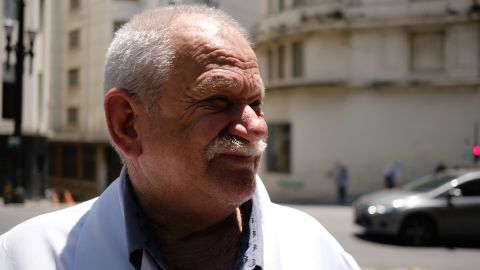
In downtown São Paulo, community leader Robson Mendonça tells us he believes, in part, Bolsonaro’s efforts to woo the poor have succeeded.
Mendonça runs an NGO that helps rough sleepers get back on their feet. Among other things, they operate a soup kitchen in the heart of São Paulo, which serves around 1,400 meals a day.
He says many of the people he helps on a daily basis have been swayed by government policy, and told him they intend to vote for the incumbent.
But Mendonça himself fears Bolsonaro is out of touch with reality, citing public statements that downplayed hunger in the country.
“Bolsonaro was even capable of lying on the national broadcaster, saying that there is no hunger in Brazil,” he explains. “But there are millions asking for a plate of food, because they can’t feed themselves.”
Another Nova Vitoria Esperança resident, Ivanilda Aninha, knows that struggle all too well.
“It’s not every day that you’re able to buy bread. Some days you have it, some you don’t,” Aninha, 36, explains. “I don’t always have formula. Some days I can’t buy meat so we have to eat beans or rice.”
She opens her fridge, revealing some bottled water and little else.
“We make do. And we carry on,” she adds.
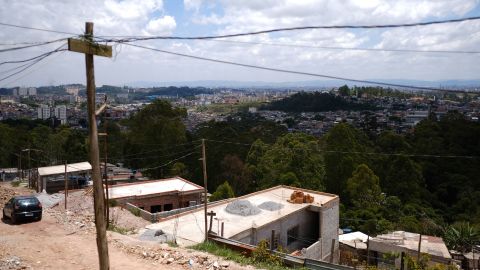
Their home is three hours and three buses away from the wealthy center, a world away from the hustle and pristine skyscrapers of Brazil’s commercial capital. The city center is where Aninha’s husband works as a builder for 14 hours every day. Despite his efforts, they still struggle to feed themselves and their four children.
Aninha, like her neighbor Silva, hopes that if Lula da Silva wins the upcoming election, her situation will improve.
“If Lula wins, I want him to lower the prices of foodstuffs, and to improve schools, transportation for our kids. I think he’ll do right by us,” she says. “Ever since I have voted for him, he has always delivered, I think he is going to do good things.”
But her smile does little to conceal the fear and uncertainty she faces.
“Despite it all, I am thankful to God for what I have,” she says before her face falls. “I just hope to God that Lula wins and he improves things.”

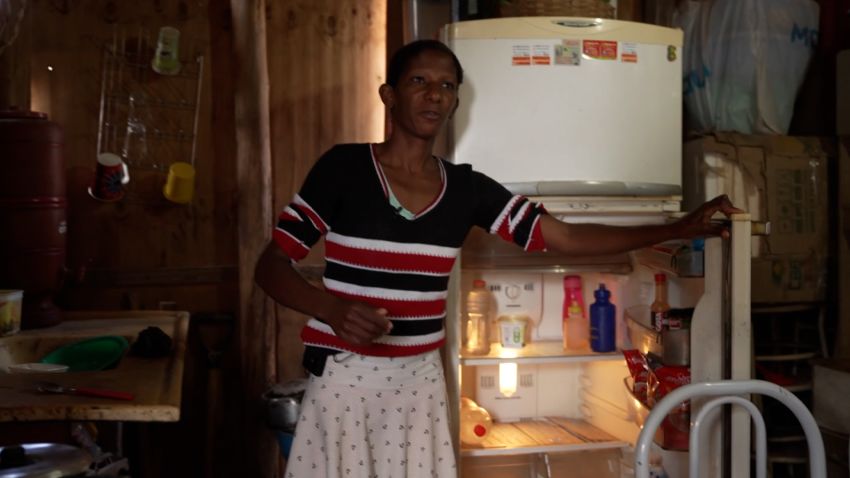
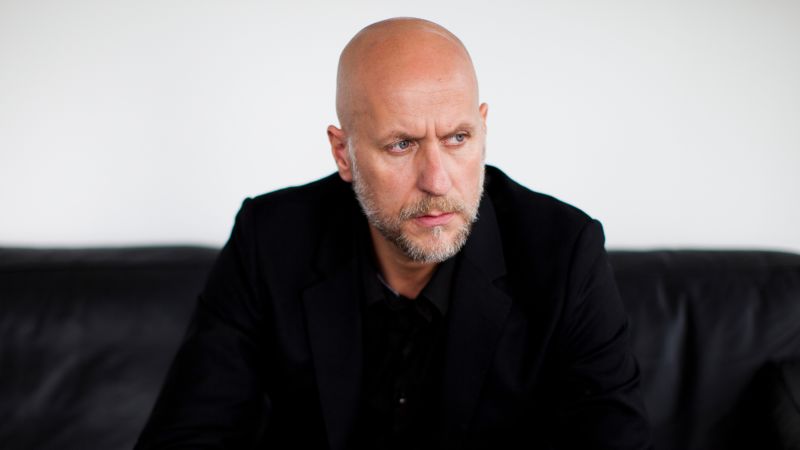

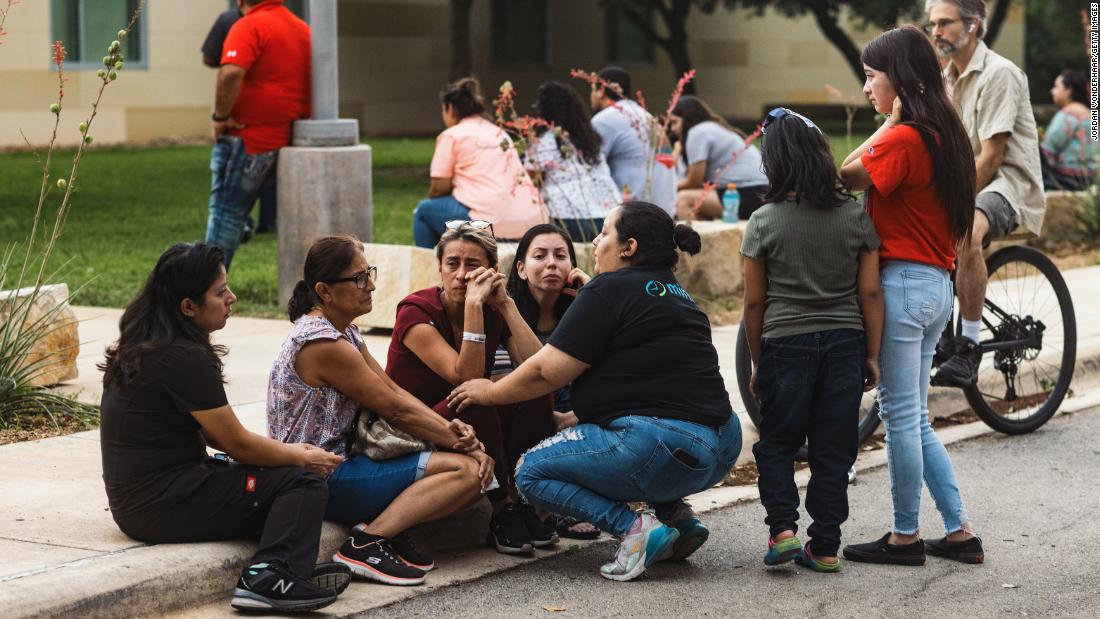


 English (US) ·
English (US) ·